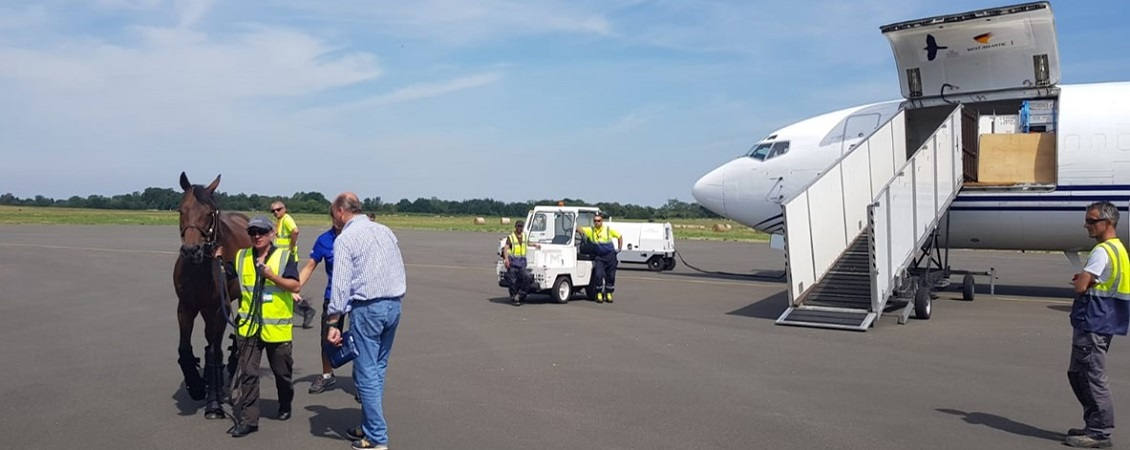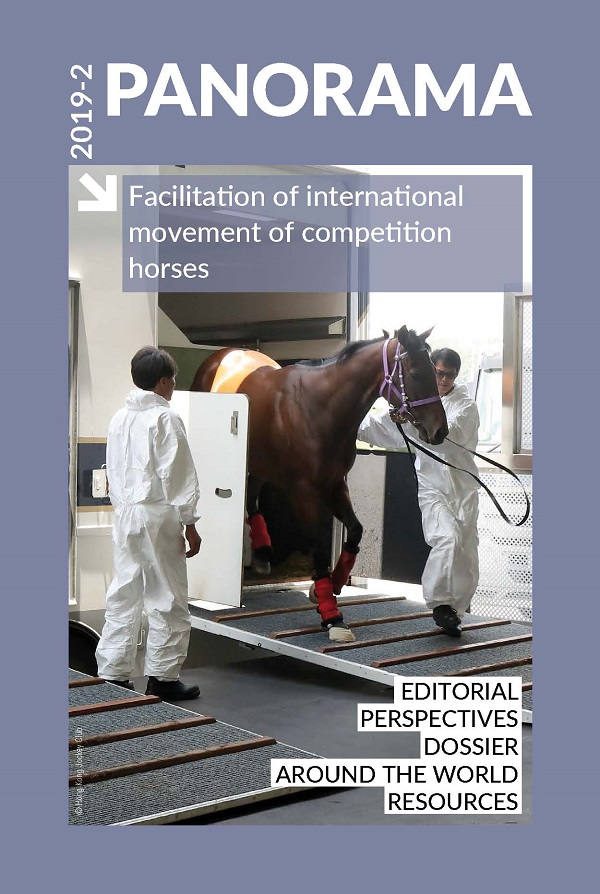Perspectives Posted on 2019-08-21 14:52:04
Practical challenges to the international movement of sport horses
Keywords
Authors
Louis Romanet(1), Ingmar De Vos(2), Göran Akerström(2) & Roland Devolz(1)*
(1) International Federation of Horseracing Authorities (IFHA), Boulogne-Billancourt, France.
(2) International Equestrian Federation (FEI), Lausanne, Switzerland.
* Corresponding author: rdevolz@france-galop.com
The designations and denominations employed and the presentation of the material in this article do not imply the expression of any opinion whatsoever on the part of the OIE concerning the legal status of any country, territory, city or area or of its authorities, or concerning the delimitation of its frontiers and boundaries.
The views expressed in this article are solely the responsibility of the author(s). The mention of specific companies or products of manufacturers, whether or not these have been patented, does not imply that these have been endorsed or recommended by the OIE in preference to others of a similar nature that are not mentioned.
Conditions at border crossings, especially when transporting horses overland, are often not optimal for safeguarding the welfare of the horses. Border inspection posts are rarely adequately equipped for the safe unloading of horses, and their watering and shade, and waiting times can be significant. In addition, official veterinarians often have limited time at border inspection posts. To minimise waiting times at borders, stakeholders in the equine industry are encouraged to liaise closely with staff at these inspection posts to ensure that an official veterinarian will be present when the horse(s) arrives.
Sport horses are international athletes and must consistently undergo high-level training programmes to maintain their level of fitness. Isolation or quarantine stations are not always adequately equipped to allow physical training. Horses that are isolated (before export or post-arrival) can have their performance level significantly affected and even their health jeopardised in facilities that do not allow any such training.
All international movements of sport horses should be carefully planned
Lastly, all international movements of sport horses should be carefully planned. Those involved in the equine industry, in particular attending veterinarians, should always liaise with the relevant Competent Authorities, shipping agents and laboratories so that everyone is fully informed of the relevant requirements, timeframes and practical tasks, such as obtaining the results of the necessary pre-shipment tests, to prepare for a successful movement.
Strengthened communication, collaboration and mutual awareness between the horse industry, Veterinary Authorities, veterinary laboratories, and Customs Administrations are necessary to overcome these practical challenges. Stakeholders are therefore urged to engage in public–private partnerships at the national level.
https://doi.org/10.20506/bull.2019.2.2972












